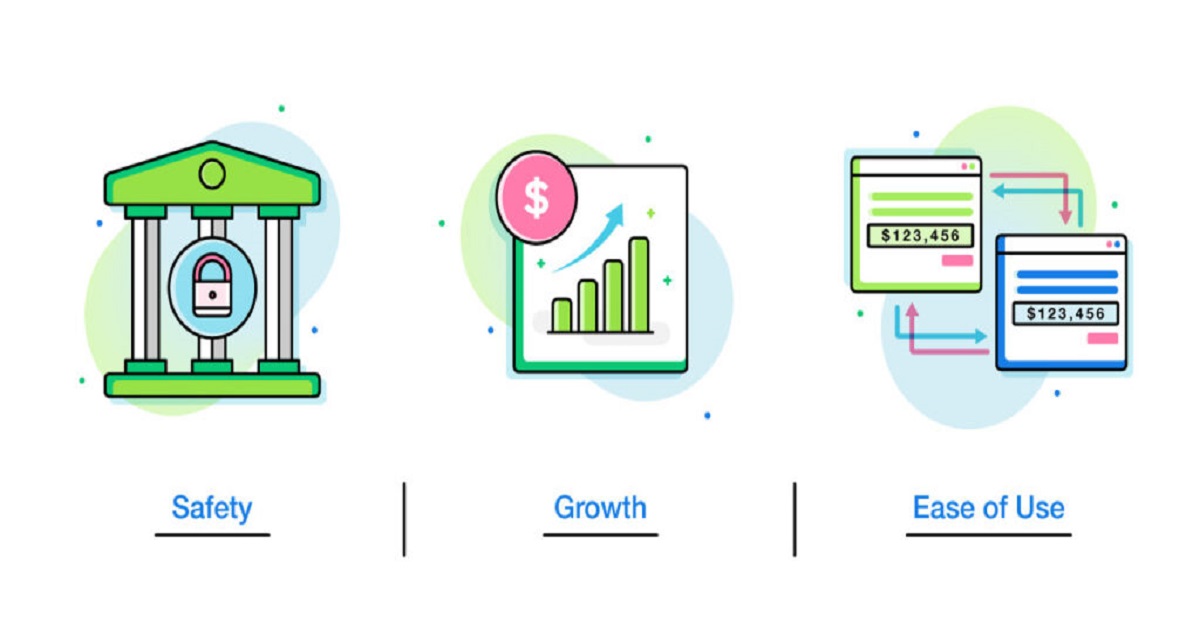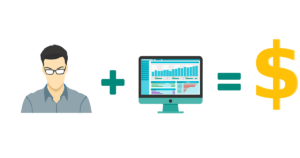Today in this article we will learn that which savings account will earn you the Least money? In personal finance, choosing the right savings account is a critical decision that can significantly impact your financial well-being. While the goal is to save money, not all savings accounts are created equal. In this article, we will delve into the intricate details of various savings accounts to answer a question that might surprise you: “Which savings account will earn you the least money?”
Factors to Consider
which Savings Account Will Earn You the Least Money? When evaluating savings accounts, several factors come into play. Interest rates, fees, accessibility, and account requirements are key considerations. It’s not just about stashing your money away; it’s about making informed choices that align with your financial goals.
What's the problem with low-interest savings accounts?"
In an era dominated by financial complexities and investment opportunities, the allure of a savings account seems like a secure haven for our hard-earned money.
Savings Account Will Earn You the Least Money? However, the prevailing issue with low-interest savings accounts lies in their inability to keep pace with inflation, rendering them less effective in preserving the true value of our funds over time. While these accounts provide a sense of security, the meager interest rates offered often fail to outpace the rising cost of living.
This results in a subtle erosion of purchasing power, meaning that the money stashed away in a low-interest savings account may not grow enough to keep up with the increasing prices of goods and services.
Savvy investors are increasingly recognizing the need for more robust alternatives, such as high-yield savings accounts, investments, or other financial instruments, to ensure that their money not only remains secure but also works diligently to combat the erosive effects of inflation.
As we navigate the complex financial landscape, it becomes crucial to evaluate whether the traditional low-interest savings account still serves as a viable option for preserving and growing wealth in the face of economic uncertainties.
Why do people often choose low-interest savings accounts?</p
which Savings Account Will Earn You the Least Money? Many individuals opt for low-interest savings accounts for various reasons, and one primary factor is the stability they offer. Low-interest accounts, typically provided by traditional banks, provide a sense of security and predictability as they are less susceptible to market fluctuations.
Moreover, these accounts are favored by those who prioritize liquidity and easy access to their funds. The simplicity of low-interest savings accounts aligns with the preferences of individuals seeking a hassle-free banking experience without the complexities associated with riskier investment options.
Savings Account Will Earn You the Least Money? Additionally, for those with a conservative approach to finance or those in need of a reliable emergency fund, low-interest savings accounts offer a safe haven, allowing individuals to safeguard their money while still earning a modest return.
Ultimately, the choice of a low-interest savings account reflects a balance between risk aversion, accessibility, and the fundamental need for financial stability in an ever-changing economic landscape.
Saving money is a fundamental aspect of financial stability, and in the United States, there are various types of savings accounts to cater to diverse needs. Understanding these options empowers individuals to make informed decisions about their financial future.
Top 10 Online Survey app to earn Money
Which Savings Account Will Earn You the Least Money? Types of Saving Accounts.
Basic Savings Accounts
Definition and Features</p
Basic savings accounts serve as the foundation for personal finance. These accounts typically offer low interest rates but provide easy access to funds, making them ideal for emergency funds or short-term savings.
Pros and Cons
While basic savings accounts offer liquidity and simplicity, their lower interest rates may not provide substantial long-term growth. Nevertheless, they remain an essential starting point for anyone beginning their savings journey.
Best Practices for Maximizing Basic Savings
To make the most of a basic savings account, consider automating contributions, setting realistic savings goals, and periodically reviewing interest rates offered by different banks.
Part-Time Virtual Assistant Jobs
High-Yield Savings Accounts
Explanation of What Makes Them Different.
High-yield savings accounts, as the name suggests, offer higher interest rates than basic savings accounts. They often require a higher initial deposit but can yield more significant returns over time.
Benefits of High-Yield Savings
The primary advantage of high-yield savings is the potential for increased earnings. This option is suitable for those who want better returns on their savings without exposing themselves to the risks associated with investments.
Considerations Before Opting for One
Before choosing a high-yield savings account, individuals should consider factors such as fees, minimum balance requirements, and any limitations on withdrawals.
Money Market Accounts
Understanding Money Market Accounts
Money market savings accounts combine the features of all savings and checking accounts. They typically offer higher interest rates than basic savings accounts and provide some check-writing capabilities.
Interest Rates and Accessibility
Money market accounts often have tiered interest rates, with higher balances earning more interest. While they offer higher returns, accessibility may be limited compared to regular savings accounts.
How They Differ from Other Savings Options
Money market accounts bridge the gap between traditional savings and checking accounts, providing a balance of interest-earning potential and liquidity.
Online Jobs for College Students
Certificate of Deposit (CD) Accounts
Definition and Structure
Certificate of Deposit (CD) accounts involve depositing a fixed sum of money for a predetermined period. In return, the account holder receives a fixed interest rate, and the funds are inaccessible until the maturity date.
Fixed-Term and Interest Rates
CDs typically have terms ranging from a few months to several years, and the longer the term, the higher the interest rate. This structure appeals to those looking for a predictable return on their savings.
When to Consider a CD Account
CDs are suitable for individuals with a specific savings goal in mind and who can afford to lock in their funds for the agreed-upon term.
Online Savings Accounts
Rise in Popularity
With the advent of online banking, online savings accounts have gained popularity. They offer convenience, competitive interest rates, and often have lower fees than traditional brick-and-mortar banks.
Advantages of Online Savings Accounts
Online savings accounts provide easy access to funds, often higher interest rates, and the flexibility to manage finances from anywhere. They are a practical choice for those comfortable with digital banking.
Security Concerns and How to Address Them
While security is a valid concern, reputable online banks employ advanced encryption and security measures to safeguard customer information. Choosing well-established online banks can mitigate potential risks.
Individual Retirement Accounts (IRAs)
Overview of IRA Options
IRAs are long-term savings accounts with tax advantages. Traditional IRAs offer tax-deductible contributions, while Roth IRAs provide tax-free withdrawals in retirement.
Tax Advantages and Contribution Limits
Understanding the tax implications and contribution limits of IRAs is crucial. Contributions to traditional IRAs may be tax-deductible, but withdrawals are taxed. Roth IRAs, on the other hand, offer tax-free withdrawals but have no immediate tax benefits.
Choosing the Right IRA for Your Goals
Individuals should assess their current financial situation, future income expectations, and retirement goals when selecting between traditional and Roth IRAs.
Custodial Savings Accounts
Purpose and Eligibility
Custodial savings accounts are designed for minors, with a custodian managing the account until the minor reaches the age of majority. Eligibility criteria vary, and these accounts provide a way for parents or guardians to save for a child’s future.
How They Benefit Minors
Custodial savings accounts teach financial responsibility and provide a financial head start for minors. The funds can be used for education, a first car, or other important life milestones.
Considerations for Parents or Guardians
Parents or guardians should be aware of the rules governing custodial accounts and communicate financial values to ensure responsible use of the funds.
Health Savings Accounts (HSAs)
Link Between Health and Savings
HSAs are designed to help individuals save for qualified medical expenses. These accounts are linked to high-deductible health plans and offer tax advantages for eligible
Benefits of High-yield Savings Accounts</p
Introduction: In a world where financial decisions shape our future, the concept of savings takes center stage. Among the myriad of saving options available, High-yield Savings Accounts have emerged as a popular choice for many individuals. Let’s delve into the enticing realm of High-yield Savings and explore the numerous advantages they offer.
Understanding High-yield Savings Accounts: High-yield Savings Accounts are not your typical savings accounts. They stand out in the financial landscape due to their attractive interest rates. Unlike traditional savings accounts, which offer minimal interest, high-yield accounts provide substantially higher returns on your deposited funds. This is the first sign that these accounts are worth considering for anyone looking to maximize their savings.
Benefits of High-yield Savings Accounts:
Higher Interest Rates: High-yield Savings Accounts are synonymous with elevated interest rates. This means that your money grows at a faster pace compared to standard savings accounts. The allure of compounding interest is a significant benefit, allowing your savings to snowball over time.
Safety and Security: While pursuing higher returns is crucial, safety is paramount. High-yield Savings Accounts, often offered by reputable financial institutions, provide a secure environment for your money. Federal regulations and insurance safeguards ensure that even in challenging economic times, your funds remain protected.
Liquidity: Despite the higher interest rates, High-yield Savings Accounts maintain a high level of liquidity. This means you can access your funds when needed without facing penalties. This liquidity feature makes them ideal for both short-term and long-term financial planning.
Financial Goals and High-yield Savings: Consider High-yield Savings Accounts as powerful tools to achieve your financial goals. Whether you’re saving for emergencies or planning for a dream vacation, these accounts offer flexibility and growth potential.
Emergency Funds: High-yield Savings Accounts are perfect for building emergency funds. The combination of high interest and easy accessibility ensures that your safety net grows steadily, providing peace of mind during unexpected financial challenges.
Short-term Goals: If you have short-term financial objectives like buying a new gadget or renovating your home, High-yield Savings Accounts enable you to reach these goals faster with their accelerated interest rates.
Comparisons with Traditional Savings Accounts: It’s essential to compare High-yield Savings Accounts with their traditional counterparts to understand why they stand out.
Interest Rate Disparities: Traditional savings accounts typically offer paltry interest rates, making the growth of your savings slow. In contrast, High-yield Savings Accounts provide a significant boost to your returns, making them a more attractive option.
Accessibility: While some investments tie up your money for extended periods, High-yield Savings Accounts strike a balance between high interest and accessibility. You can withdraw funds when needed without sacrificing the benefits of compounding interest.
Tips for Maximizing High-yield Savings: To make the most of your High-yield Savings, follow these practical tips:
Research and Choose Wisely: Not all High-yield Savings Accounts are created equal. Research different financial institutions, compare interest rates and fees, and choose an account that aligns with your financial goals.
Regular Contributions: Consistency is key. Make regular contributions to your High-yield Savings Account to leverage the power of compounding interest. Even small, consistent deposits can lead to substantial growth over time.
Risks and Considerations: While High-yield Savings Accounts offer numerous benefits, it’s crucial to be aware of potential risks and considerations.
Market Fluctuations: The interest rates on High-yield Savings Accounts are subject to market fluctuations. Stay informed about economic trends to anticipate potential changes in your returns.
Fees and Restrictions: Some High-yield Savings Accounts may come with fees or restrictions. Read the terms and conditions carefully to avoid unexpected charges and limitations on withdrawals.
Case Studies and Success Stories: Real-world examples can illustrate the tangible benefits of High-yield Savings Accounts.
Real-world Examples: Explore stories of individuals who have successfully grown their savings through High-yield Savings Accounts. These narratives provide practical insights into the positive impacts of choosing the right account.
Positive Impacts: High-yield Savings Accounts have empowered people to achieve their financial goals faster, whether it’s buying a home, starting a business, or securing a comfortable retirement.
Perplexity of High-yield Savings: Navigating the complexities of High-yield Savings requires a strategic approach.
Balancing Risk and Reward: High-yield Savings Accounts involve a balance between risk and reward. Understanding your risk tolerance and financial goals will help you make informed decisions about the amount you allocate to these accounts.
Market Influences: External factors such as economic conditions and central bank policies can influence the interest rates on High-yield Savings Accounts. Stay attuned to these market influences to adapt your savings strategy accordingly.
Burstiness in Savings Strategies: Harness the burstiness in your savings approach for optimal results.
Seizing Opportunities: High-yield Savings Accounts provide the flexibility to seize opportunities. Whether it’s a limited-time investment or a sudden financial goal, the burstiness in your savings strategy allows you to act decisively.
Adapting to Market Changes: Markets evolve, and so should your savings strategy. Being adaptable and open to adjusting your approach based on market changes ensures that your High-yield Savings continue to work in your favor.
How to Open a High-yield Savings Account: Follow these steps to open a High-yield Savings Account successfully.
Step-by-step Guide:
Research and choose a reputable financial institution.
Gather necessary documentation, including identification and proof of address.
Complete the application process online or in-person.
Fund your account with an initial deposit.
Necessary Documentation: Ensure you have a valid ID, proof of address, and any additional documents required by the financial institution.
Common Misconceptions about High-yield Savings: Clearing up myths and misconceptions is crucial for informed decision-making.
Addressing Myths: Dispel common myths about High-yield Savings, such as the notion that they are only for the wealthy or that they come with hidden fees.
Clearing Confusions: Clarify any confusion about how High-yield Savings Accounts work, ensuring that potential savers have accurate information.
Future Trends in High-yield Savings: Look ahead to the future of High-yield Savings.
Technological Advancements: Expect advancements in technology to enhance the user experience of High-yield Savings Accounts, making them more accessible and user-friendly.
Evolving Customer Demands: As customer preferences evolve, financial institutions will likely adapt their High-yield Savings offerings to meet changing demands.
Disadvantages of Traditional Savings Accounts?
Traditional savings accounts have long been a popular choice for individuals looking to park their money securely while earning a modest interest rate. However, these accounts come with their fair share of disadvantages.
One significant drawback is the low-interest rates offered by traditional savings accounts, often failing to keep pace with inflation. This means that over time, the purchasing power of the saved money may decrease. Additionally, the interest earned on these accounts is typically subject to taxation, further diminishing the overall returns.
Another drawback is the lack of flexibility; withdrawing money from a traditional savings account may come with penalties, making it less suitable for those who may need quick access to their funds. Moreover, the rise of online banks and alternative financial products has introduced more competitive options that often offer higher interest rates and innovative features, making traditional savings accounts seem outdated in comparison.
As financial landscapes evolve, individuals must weigh these disadvantages when considering where to stash their savings for optimal growth and accessibility.
Conclusion</p
In conclusion, the choice of a savings account plays a crucial role in determining the growth of your money over time. While safety and accessibility are important considerations, settling for an account with minimal interest rates may result in missed opportunities for substantial earnings.
As we’ve explored various types of savings accounts, it becomes evident that a proactive approach to seeking higher yields, whether through high-yield savings accounts, CDs, or other investment options, is key to maximizing your financial potential.
Ultimately, the decision rests on aligning your financial goals with the features offered by different accounts, ensuring that your hard-earned money not only remains secure but also has the opportunity to thrive. So, which savings account will earn you the least money? The one that lacks the ambition to help your wealth grow. Choose wisely and empower your savings to work for you.









5 thoughts on “Which Savings Account Will Earn You the Least Money? 24”